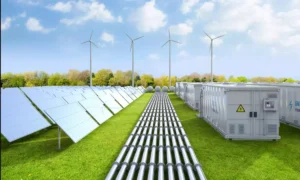The pieces of the puzzle are aligning for India to achieve robust growth in renewable power, fulfil its environmental obligations and address its energy security.
As India’s GDP demonstrates consistent year-on-year growth, reaching 6 to 7 percent, the nation’s potential for sustained economic expansion is undeniable. However, this growth also brings with it a significant surge in energy demand, making energy security a crucial imperative. Separately, India has also committed to growing the renewable energy sector and achieving net-zero emissions by 2070, reflecting its dedication to combating climate change.
According to a McKinsey report, although renewable energy production has doubled worldwide over the past decade, its contribution to total primary energy consumption has only increased from 9 per cent to 13 per cent. The demand for energy has surged by 14%, primarily driven by emissions-intensive sources, resulting in a 5 per cent increase in energy-related emissions (equivalent to 1.7 Gt of CO2). Alarmingly, fossil fuels continue to dominate the energy mix, maintaining an unchanged share of 82 per cent in primary energy consumption.
India can perceive these circumstances as challenges or as incentives to fast- track its journey towards net zero while simultaneously ensuring energy security.
Presently, India holds a significant position as a global energy player in terms of production and consumption. The manner in which India balances its energy security with net-zero objectives and shapes its energy policy will have implications not only for India but will also have a global impact.






